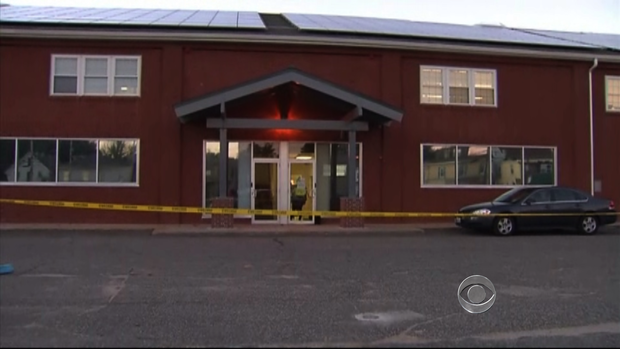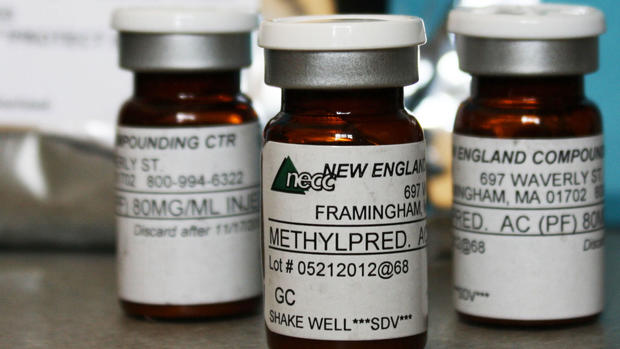Company to lose license over meningitis outbreak
(CBS News) Investigators say they could see with their naked eyes black specks of deadly fungus floating in vials of steroids due to be injected into patients across the country.
Late Tuesday, authorities said a criminal investigation would be opened and they would move to revoke the license of New England Compounding Center. That's the pharmacy identified as the source of contaminated drugs that have caused a meningitis outbreak in at least 17 states. About 300 hundred people have come down with the disease and 23 have died. Federal officials say the outbreak is spreading.
The preliminary investigation has revealed a lack of basic laboratory standards at New England Compounding Center. On Tuesday, Massachusetts state investigators found that NECC:
- had dirty floor mats and a leaky boiler
- did not properly test lab equipment
- did not adequately sterilize medications
- and shipped drugs before they were tested for contamination
Dr. Madeline Biondolillo is leading the investigation for the Department of Health: "On 13 occasions NECC staff shipped orders from the suspect lots before receiving their own testing results confirming that those lots are sterile."
Officials also claim the company broke state law by shipping their products in bulk without valid prescriptions. According to Massachusetts law, compounding pharmacies must have a prescription for every patient for each dose they send out. More than 17,000 vials of the suspect steroid went to clinics in 23 states.
Mass. moves to revoke license of firm tied to meningitis outbreak
FDA confirms Mass. firm's link to meningitis outbreak
Meningitis-linked pharmacy has history of problems, documents show
Documents released Monday show that complaints against NECC for lack of individual prescriptions date back to 1999.
NECC co-owner Barry Cadden told the state pharmacy board in 2004 that his company would abide by the law -- "that each and every compounded medication shall be filled based on a valid prescription, written by a qualified physician for a specific patient."
The state and the FDA made a joint inspection of the facility in 2004.
"Typically the FDA would go back in and reinspect," said Sheldon Bradshaw, who was the FDA's chief counsel. "Here it appears that the FDA simply relied upon New England Compounding Center's word that they had corrected the problems."
In 2006, NECC pledged to upgrade its quality-assurance procedures as part of a legal agreement with the state.
We called the NECC after Tuesday's charges and they responded by saying the state health board "...had numerous opportunities, including as recently as last summer, to make first-hand observations of the NECC's facilities and operations...it is hard to imagine that the Board has not been fully apprised of both the manner and scale of the company's operations."
So are they saying that the state of Massachusetts should have caught them? Back in 2011, there was an inspection on site, and NECC passed that inspection. But one of the problems is there is no routine inspections of compound pharmacies like this in Massachusetts. Basically they wait for a complaint like this.


